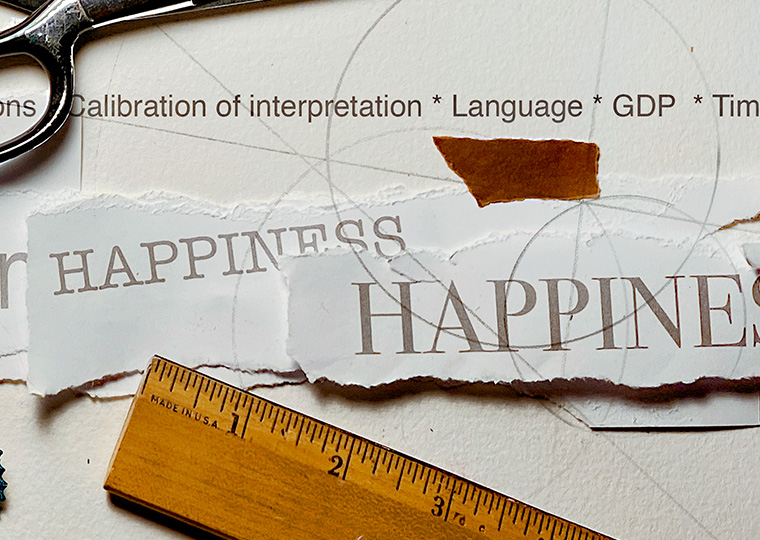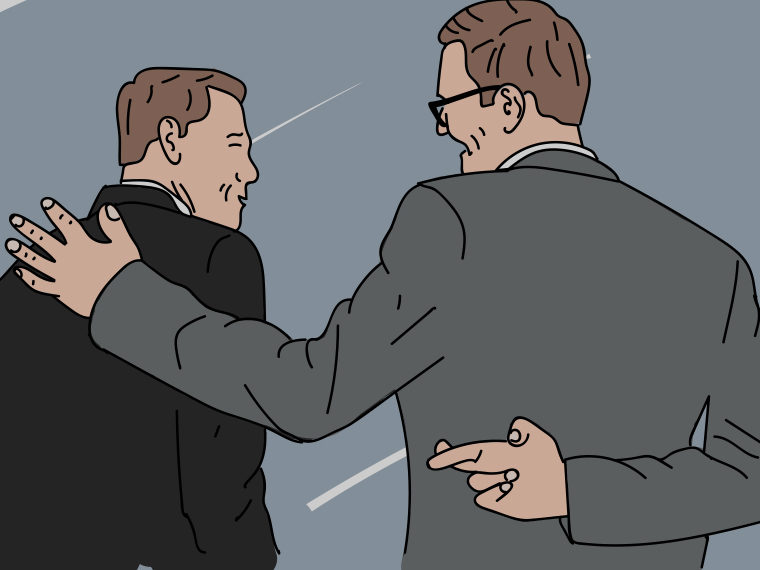People will endure inconvenience to synchronize events, regardless of proximity
Technology made it possible for us to navigate the necessary isolation of the pandemic without complete disruption to our work and social lives. Zoom and FaceTime kept workers working and students learning. Off hours, apps ushered in the age of virtual yoga classes, virtual cocktail gatherings, virtual marathons, virtual family gatherings and myriad other let’s-do-it-together-while-apart events.
While the need to distance has dissipated somewhat, we’ve collectively shown ourselves that we can function remotely. Depending on circumstance and desire, many may continue to rely to some extent on a life led virtually, rather than always in-person.
Yet for all its convenient upsides, a remote life challenges our human imperative to feel connection and bonding.
Opt In to the Review Monthly Email Update.
Research forthcoming in the Journal of the Association for Consumer Research found an interesting way in which we’re motivated to create a sense of connection that transcends physical proximity. In a series of eight experiments, participants were eager to schedule doing something or receiving something at the same time as a friend or someone they admired, even though they would not be in the same place at the set time.
UCLA Anderson’s Franklin Shaddy, Peking University’s Yanping Tu and University of Chicago’s Ayelet Fishbach found we’re even willing to pay a price of sorts to synchronize our schedules to share a time — though not a place — for a mutual experience.
A core principle of psychology is that we typically want to experience pleasure sooner and delay painful or negative events as long as possible. Yet in experiments that studied the behavior of more than 3,000 participants, the researchers found that people were willing to delay pleasure and move up pain — paying a psychological cost — if it meant they could schedule an experience at the same time as a friend or someone they admire, even though they would not be in any physical proximity.
The choice to sync persisted even when experiment participants knew the other person wasn’t aware of the event. Syncing was also prioritized when it meant committing to an inconvenient time slot to “connect” with a friend. And as a bit of proof of concept, the researchers found that when experiment participants were primed to think about someone they didn’t like, they were not motivated to sync schedules.
“Synchronized scheduling acts as ‘social glue,’ increasing feelings of not only person-to-person social connection, but also solidarity, trust and cohesion within the group. As a result, it counteracts experienced and anticipated physical disconnection,” they write. This research complements prior published work by Shaddy and Fishbach that established our desire for social connections compels us to want to share life experiences — good and bad — in real time with friends.
Scheduled Connectedness
In one of the syncing experiments, more than 200 participants were told they had won a box of macarons for completing a task. All participants were told they could schedule to receive their box in either two weeks or two months. A subset of participants was told that they had also earned a free box for a friend, who would receive it in two months. Participants then were asked to choose either the two weeks or two months to take delivery of their gift. More than half of participants who were told their friend would get the box in two months, chose to wait that long, compared with less than 20% of participants who were simply told they qualified for the gift.
Senatorial Synching
In another experiment, the researchers asked nearly 700 participants who follow politics to identify one U.S. senator they liked and one U.S. senator they dislike. Participants were then told one of the senators they identified would receive a floral bouquet that would be delivered on a specific date. Once again, some of the participants were told they too would be sent a bouquet, which they needed to schedule delivery for. Participants could choose to receive their bouquet before the senator, the same day or the following day. More than 70% of participants who learned a bouquet would be sent to the senator they liked, chose to delay delivery of their own bouquet to sync up with the senator. Less than 30% of participants who learned the bouquet would be delivered to the senator they disliked chose to sync.
Participants also answered a series of questions to measure the extent to which they perceived synching delivery with their assigned senator as “social glue.” On a scale of 1 (strongly disagree) to 5 (strongly agree), participants weighed in whether the opportunity to sync promoted a sense of connectedness, solidarity, trust, unity and commonality with the senator. The average “social glue” score was 3.58 for participants who were matched to a senator they liked, compared with 1.54 for participants matched to a senator they disliked.
Technology enables a more remote life, but challenges traditional notions of connection. The researchers strike an optimistic note that technology also enables synchronized scheduling. Given that syncing to share experiences in time — but not space — promoted a higher sense of “social glue,” Shaddy, Tu and Fishbach conclude that this mechanism “has the potential to boost morale, motivation and meaning in the community, workplace and beyond.”
Featured Faculty
-
Franklin Shaddy
Assistant Professor of Marketing and Behavioral Decision Making
About the Research
Shaddy, F., Tu, Y., Fishbach, A. (2022). Synchronized Scheduling: Choosing to Experience Different Events in Different Places at the Same Time as Others.






